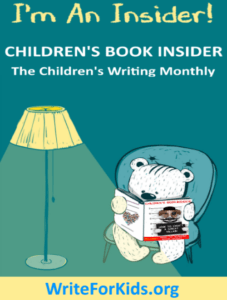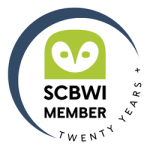A Frosty Choice
Two roads diverged in a wood, and I
And I took the one less traveled by,
And that has made all the difference.
Ah, Frost’s famous lines that celebrate and embrace individualism. The encouragement to go against the grain, to strive beyond mediocrity, to go where few have bothered to travel. It’s the stuff of graduation speeches, self-help tomes, greeting cards, posters, coffee mugs, t-shirts, and it even helps to sell cars.
According to David Orr in his literary/biography/analysis, The Road Not Taken, we have got it all wrong. The subtitle clues us in: Finding America in the Poem Loves and Almost Everyone Gets Wrong.
In Orr’s introduction he asserts and emphasizes that the roads are equally traveled, that the two roads are interchangeable. The speaker admits the other road “just as fair” and “the passing there/Had worn them really about the same…” The speaker further notes: “And both that morning equally lay/In leaves no step had trodden black.”
To me it’s all saying: “Hey, which way should I go? I have no idea. They look both the same.”
David Orr would tell us this is perhaps right, then again maybe not. After all, poetry is a matter of perspective. He states that the poem “is a literary oddity and a philosophical puzzle, but more than anything else it’s a way of framing the paradoxical and massively influential culture in which it both begins and ends.”
Maybe Orr is the only one who does get it right because after reading his illuminating, worthwhile, and fascinating treatise on Frost’s poem, I still think it’s all about making choices and living out the decisions we’ve made–no regrets.
Then again, Frost might be having the last laugh. Apparently the poem is his gentle poke at how his good friend, Edward Thomas, a British poet, had considerable difficulties selecting which way to go when he and Frost would ramble around the English countryside together. Thomas would lament how the other direction had just as many lovely sights to see. In other words, they were both good choices, yet Thomas always felt a bit of regret for not having gone the other way. It seems Frost’s poem gently chides his friend to be happy with the choice made, to be satisfied.
Frost’s poem is perhaps not so much a celebration of marching boldly through the tangled bracken of life, tripping over logs of distraction and despair, rather it’s a quiet reflection of accepting the road that is taken, and not lamenting over the one that was not taken.
Overall, for such a slim volume (weighing in less than 200 pages), it is filled with solid bits of reflective insights:
- Frost originally titled the poem “Two Roads”–that changes things, a bit.
- He specifically used roads, not paths and emphatically noted the difference upon hearing someone begin a recitation replacing “paths” for “roads.”
- This is very much an American poem, written by an American poet extolling the ponderation of choice, something Americans have historically and culturally embraced, yet the poem is based upon a time when Frost resided in England.
- Frost admitted that he did not always consciously make decisions: “I never know what is going to happen next because I don’t dare to let myself formulate a foolish hope.”
- I learned about “confabulation”–the concept about artful lying (my interpretation).
- The big question Orr asks is this: if we don’t know why we made the decision, is the choice made a meaningful one?
- Frost liked being a bit of a mystery to his public and biographers, which is reflected in his poetry.
- The poem might also have its foundation upon an actual incident where Frost was walking upon a road and met a man coming in the other diection. Frost felt this man to be his mirror image and should they converge and intersect he would grow stronger in his last part of his journey home.
- The poem, its twenty or so lines, is considered one of the most popular pieces of literature written by an American–Google search stats tells us so.
It’s said that while William Wordsworth desired his poetry to be of a man speaking to men, wanting to speak lyrically from experience, from the heart, Robert Frost, asserts Orr, wanted to speak with men. Frost included the reader in his metered musings by having a conversation with us. I think Frost wanted to assert a warmth in poems by including us into his writing, which he achieved with his casual conversational tone and second person pronoun usage. His writings remain popular because they are so relatable. He includes us, wanting us to share in his experience.
If allowed, I would like to celebrate and propose this thought: combine two of Fost’s popular poems. Take the individualism “The Road Not Taken” inspires and the idea of sharing the decision of choice with the reader, and add in the joy of discovery found in “The Pasture,” so that the universality of realizing we are all on a journey together is made more readily apparent.
Two roads diverged in a wood, and I
And I took the one less traveled by,
And that has made all the difference–you come, too.
*BtW: am I the only one who realizes YouTube videos can’t be uploaded unless I upgrade my plan? Huh? When did that happen?




Just on the YouTube vids – you should be able to embed them. I paid for theme I have and I upgraded to customised text – but that’s it, I don’t have a paid plan, and I’ve embedded a YouTube video before at the bottom of this post https://bitsnbooks.wordpress.com/2015/11/12/book-review-the-natural-way-of-things/ (or maybe I can see it and no one else can?).
I think it’s just your own mp3s you can’t upload (like you do with photos, for example).
Thanks. That helps clear things. Linking them for now seems to work
I stumbled across this interpretation somewhere else and chuckled. So many think that Frost was a simplistic, child-friendly poet. Well, I do think he got the last laugh. I’ve recited this poem and Stopping by the Woods… to my son to wake him up in the morning for the past couple of years. I think the last line “and that has made all the difference’ is ironic in that everyone wants to think the path they’ve taken is unique, when it’s really been well-trodden by others who’ve come before. But it’s good to think about those forks in the road and make conscious decisions, not let the road just sweep us along. And regrets? Well, it’s good to learn from the past and not dwell on what may have been lost.
Pingback: Poem of the Month: of Roads, Readers, and such | cricketmuse